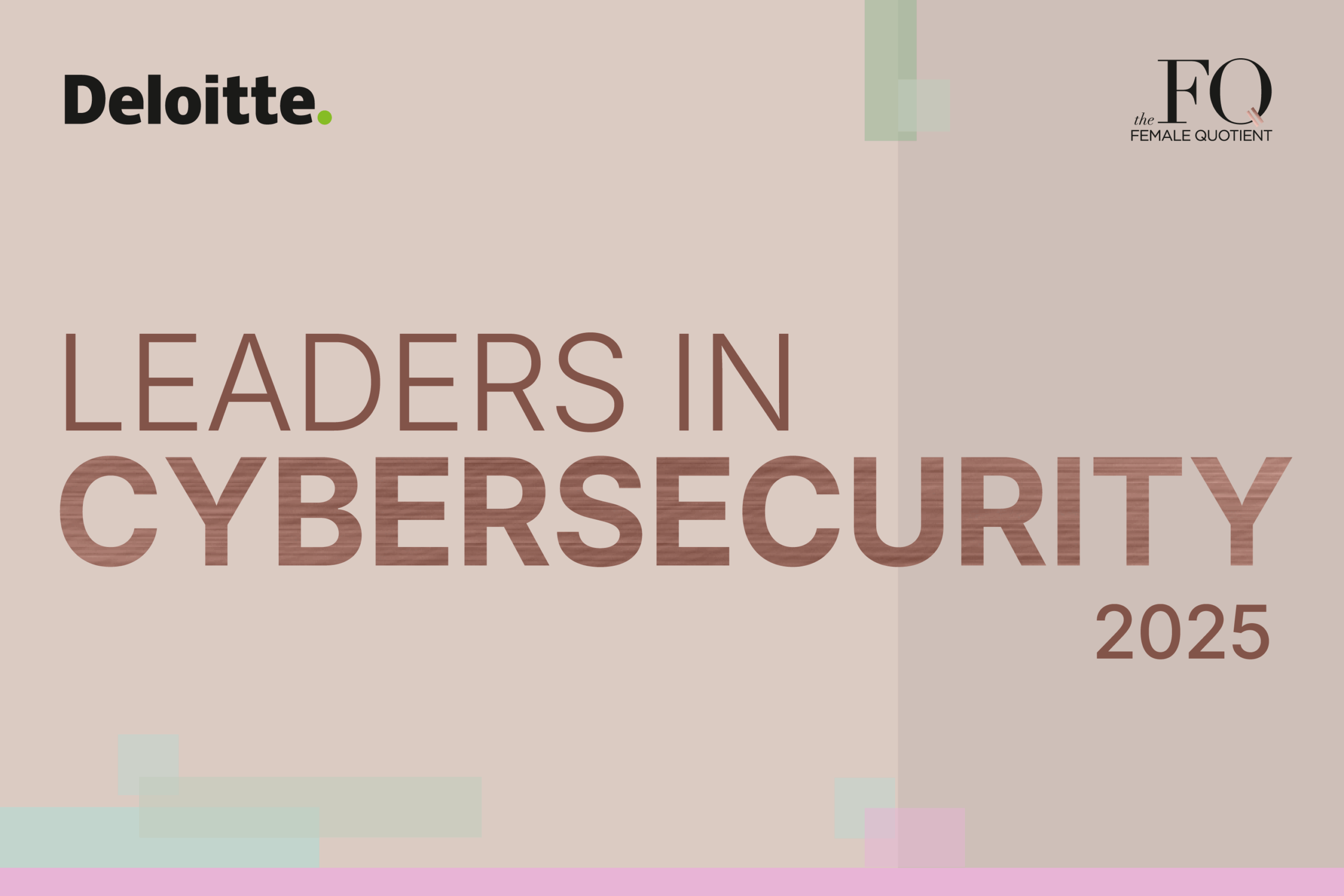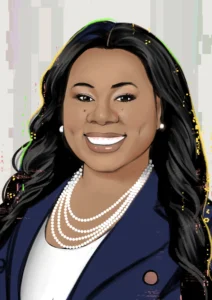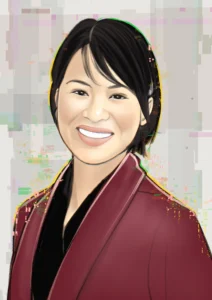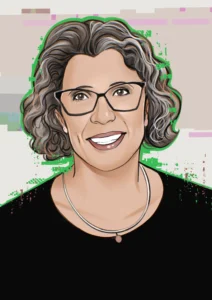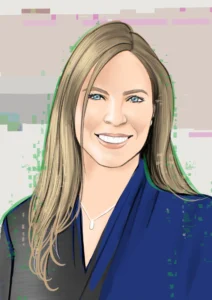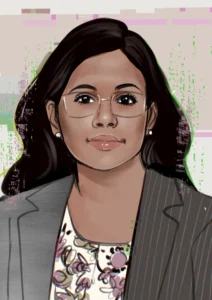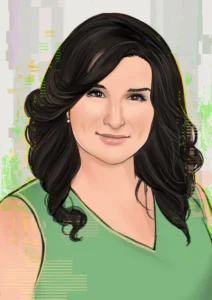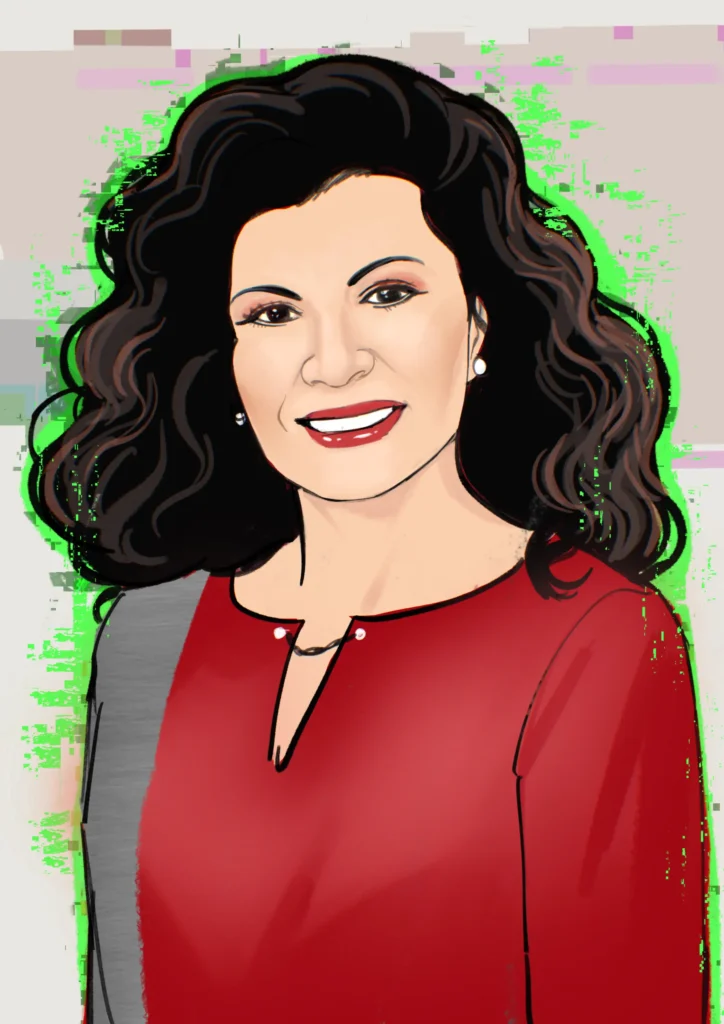
Xochitl Monteon
“Growing talent and building confidence is one of the most lasting impacts a leader can make.”
Xochitl Monteon is SVP & Global CISO at Aristocrat, leading cybersecurity strategy and resilience across a global footprint. She’s focused on managing cyber risk, safeguarding data, and enabling secure innovation at scale. Previously Chief Privacy Officer and VP of Cybersecurity Governance, Risk Management, and Compliance (GRC) at Intel , Xochitl brings over 30 years of leadership, including roles at J.P. Morgan Chase, McAfee, eBay, and PayPal. She holds a bachelor of science from San Jose State University and advanced certifications in security, privacy, and risk management.
What is one skill, interest or talent of yours that makes you great at your job?
My superpower is helping people uncover and grow their hidden talents. I have a passion for developing high-potential individuals and helping them see strengths they didn’t know they had. In cybersecurity, where the landscape evolves rapidly, building adaptable, empowered teams is just as important as technical skills. Investing in people not only strengthens our security posture, it also helps create a culture of trust, innovation, and resilience.
What is the best piece of unconventional career advice you’ve gotten?
Always try things outside of your area of specialty. It’s pushed me to take on roles and challenges that seemed outside my lane, but those experiences expanded my perspective, built resilience, and uncovered strengths I didn’t know I had. In cybersecurity, where innovation and adaptability are key, this mindset has been invaluable. Growth lives just outside your comfort zone.
What is your proudest moment working in the cybersecurity industry?
My proudest moments in cybersecurity aren’t tied to technologies or titles. The best moments are when people I’ve mentored outgrow their roles, move on to bigger opportunities, and send messages saying, “Thank you for believing in me.” Whether it’s a LinkedIn post, a photo of their new business card, or a heartfelt email, those moments remind me that growing talent and building confidence is one of the most lasting impacts a leader can make.
When did you become interested in pursuing a career in cyber and what prompted it?
I became interested in cybersecurity when I graduated from college and toured my first server room. Seeing the heart of an organization’s technology sparked a deep curiosity. Shortly after, I began dabbling in disaster recovery, and that hands-on exposure to protecting systems and ensuring continuity lit a fire in me. It was my first glimpse into the important role security plays in enabling trust, and I’ve been hooked ever since.
What are the top 3 things you would tell people hoping to enter the cybersecurity industry?
- Be curious: Cybersecurity is constantly evolving, and a natural desire to understand how things work will take you far.
- Adopt a growth mindset: Every setback is a learning opportunity, and continuous improvement is key.
- Say ‘yes’ to new challenges: Even if you don’t feel 100% ready, some of the best growth happens outside your comfort zone.
What are some misconceptions people might have about the cybersecurity industry and what can we do to change these misconceptions?
One common misconception is that you need an engineering degree to work in cybersecurity. In reality, many successful professionals come from non-technical backgrounds. Cybersecurity is a field where curiosity, adaptability, and problem-solving matter just as much as formal education.
Do you feel like you’re contributing to helping keep our world secure and can you share why that matters to you?
Protecting data, whether it’s someone’s personal information or a company’s intellectual property and trade secrets, is foundational to trust in the digital age. Security enables innovation, protects livelihoods, and preserves privacy. Knowing that my work helps safeguard what matters most to people and organizations is what makes this career so meaningful to me.
What positive change do you think will take place as we bring the next generation into the cybersecurity industry?
I believe we’ll see a powerful shift in how we think about data protection, especially given the rise of artificial intelligence (AI) and the unprecedented speed at which data now moves. This generation has the opportunity to build security into the fabric of innovation from the start. By educating them early on the real-world impact of their work, we can foster a culture of responsibility, agility, and ethical tech development that keeps pace with the future.

